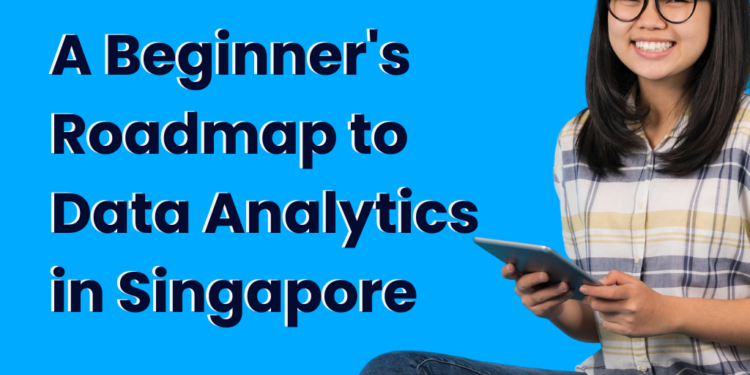Data analytics is the heartbeat of modern business strategy, especially in a dynamic marketplace like Singapore. It’s not just about processing numbers; it’s about unlocking the narratives that data conceals, forecasting trends, and shaping critical business choices. Whether you’re a novice, a career switcher, or intrigued by data’s potential, Singapore offers a fertile ground for growing your analytical prowess.
Embarking on this path requires a clear understanding of the necessary tools—Excel, Python, R, SQL, and Tableau—and cultivating a keen analytical mindset. As we guide you through these essentials, you’ll discover the skills and attitudes that make a data analyst stand out.
Ready to dive in? Let’s begin your transformation into a data-savvy professional capable of turning information into insightful, actionable decisions.
Section 1: Understanding Data Analytics
Data analytics is the art of analysing raw data to make conclusions about that information. With its competitive economy and tech-forward approach in Singapore, data analytics is vital across sectors—from finance to healthcare, e-commerce to urban planning. It’s about sifting through data to find patterns, test theories, and drive innovation.
For a budding data analyst in Singapore, this means embracing the role of a detective in a world of numbers. You will understand how to ask the right questions, spot trends, predict outcomes, and narrate the story the data tells. This is the foundation upon which your analytics career will be built, a stepping stone to becoming a key player in Singapore’s data-driven future.
The following sections will demystify the tools and skills you need to start this rewarding journey.
Section 2: Tools of the Trade for Data Analyst
Every craftsman needs their tools, and data analysts are no different. Let’s look at the software that will be your bread and butter in this field:
Excel
Start with Excel, the foundational tool for any aspiring data analyst. It’s where you’ll learn to manipulate and visualise data with pivot tables and charts. You might think it’s just for spreadsheets, but Excel’s formulas and functions can easily perform complex data analysis tasks. If you’re in Singapore, plenty of local workshops can get you started—why not sign up for one today?
Tableau
Move on to Tableau, where data meets design. Tableau transforms rows of data into stunning visuals that tell a story. As businesses in Singapore increasingly rely on data visualisation, mastering Tableau will make you a sought-after analyst. Check out online courses or find a local Tableau user group to enhance your skills.
Python
Python is where things get exciting. With its vast ecosystem of libraries like pandas and Matplotlib, Python allows you to conduct sophisticated data analysis and create complex visualizations. It’s a skill highly valued in Singapore’s tech-driven job market. Start learning Python through online platforms and apply it to real-world datasets.
SQL
SQL is the language of databases. In Singapore’s data-centric industries, the ability to use SQL to query and retrieve data from databases is indispensable. It complements every other tool in your arsenal. Local SQL bootcamps or online courses can set you on the path to database mastery.
R
Lastly, R is for those who revel in statistical analysis and research-oriented tasks. In Singapore, sectors like biotech and finance rely on R for data modeling and analysis. If you’re keen on roles that involve heavy statistical work, R is essential. Begin with an introductory course in R to understand the basics.
Skillset to become Successful Data Analyst in Singapore
To excel in data analytics, especially within the fast-paced Singaporean market, it’s crucial to develop a robust skillset that goes beyond software proficiency:\
Technical Skills
Begin by building a solid foundation in statistical analysis—understand mean, median, mode, standard deviation, and correlation. Grasp the basics of machine learning; even a conceptual understanding of algorithms can be beneficial. Don’t forget data wrangling—cleaning and preparing data is as critical as analysing it.
Analytical Thinking
A data analyst must think like a detective, constantly asking “why” to uncover the truth behind the numbers. This means developing strong problem-solving skills and the ability to think critically about the data you’re working with.
Communication
Your insights are valuable only if you can communicate them effectively. Learn to translate complex data into clear, understandable visuals and reports. Remember, the best analysis is only practical if it can be understood by decision-makers.
Begin enhancing these skills today. Look for online courses, local workshops, or webinars that focus on these areas. Remember, the more you practice, the more proficient you’ll become. So, start analysing datasets, participate in forums, or join data challenges online to put your skills to the test.
Attitude and Values
The right mindset and professional values are just as important as technical skills in carving out a successful career in data analytics. Here are the essential attitudes and values needed:
Curiosity
Curiosity drives data analysts to dig deeper, question assumptions, and discover new insights. It’s about having an eagerness to learn and a passion for uncovering hidden facets of data.
Persistence
Data analytics often involves complex and challenging problems. Persistence is crucial in working through them to find solutions. It means not getting discouraged by dead ends or confusing results and having the tenacity to persevere.
Attention to Detail
Being meticulous with your analysis can make a significant difference. Minor errors can lead to incorrect conclusions, so a sharp eye for detail is essential.
Reflect on these values and assess how they resonate with your approach to learning and problem-solving. Consider how you can cultivate these attitudes daily, whether by tackling complex problems, engaging with detail-oriented tasks, or staying curious about the world of data around you.
Getting Started in Singapore
Embarking on a data analytics career in Singapore is an exciting prospect. Here’s how you can start:
Education and Training: Seek out courses or certifications in data analytics. Singapore offers a range of options, from local institutions providing specialised training like Vertical Institute.
Practical Experience: Apply your learning by working on real-world projects. Participate in hackathons, contribute to open-source projects, or intern at companies that value data-driven decision-making.
Networking: Connect with professionals in the field. Attend meetups, join online forums, and engage with the data analytics community in Singapore.
Take the first step today. Research educational programs, reach out to potential mentors, and attend local data-related events. Every small step is a leap forward in the data analytics landscape.















